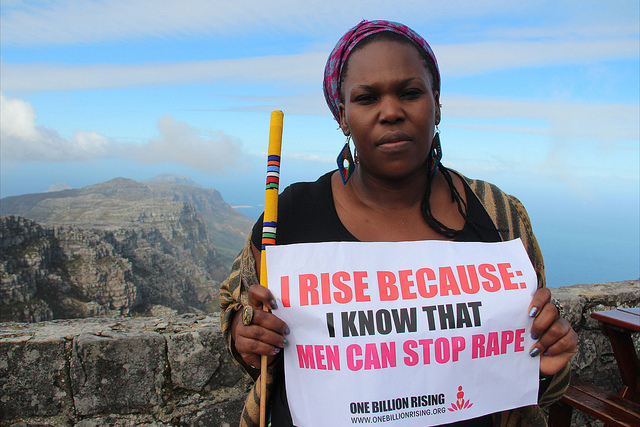The 2005 amendment to the rape law made rape first and second degrees felony based on the nature of the crime, making it non-bailable. The establishment of Criminal Court E for only rape cases in 2008 further showed the government’s willingness to tackle rape cases.
The rationale was to fast-track the cases and to ensure that officials of the court dealing with rape cases were in control of the rules of evidence, which accordingly were different from other cases. Rape, it seemed, transcended every other crime in the state.
As a mainstream advocate for women and girls’ rights, many persons have questioned my silence over the apparent danger this amendment, if effected, will pose to women and girls.
As stringent as the rape law appeared, there were low prosecution and conviction rates of accused persons. For instance, data shows that between 2009 and 2014, only 38 rape cases went to trial, of which 24 resulted in convictions and 14 resulted in not guilty verdicts. During the same period, 286 cases of rape were dismissed by prosecutors.
Many cases were dismissed due to lack of proper evidence gathering by police, compromises, and corruption. In 2015, only one of 137 cases on the docket was tried.
What have the different judicial actors, including a special court, done? Why has impunity, lack of prosecution or conviction been rampant with such law? Has the special court’s existence even served as a deterrent to would-be rapist? Or was it just cosmetic so that women and girls felt confident about reporting cases of rape because they perceived redress for such cases, which most times did not happen.
End of Sirleaf Presidency and Threat to Women
This amendment’s timing is at a crucial juncture in the transition from a 12-year female-led presidency to many more years of possible male dominance. If the social, political, and economic security of cannot be guaranteed, it may soon be a return to the days where women were thought to have no contribution to society except for their bodies being used for the uninhibited pleasure of men.
In the spirit of fairness, without hammering this proposed amendment, there are some issues with the current dispensation that need to be highlighted and resolved – not by amending the law.
There are many cases where people are falsely accused of rape as a means of revenge for prior personal issues. They spend a significant portion of their lives in confinement; damage is done to their reputation and livelihood, in some cases, and in the end, they are found not guilty of the accused crime.
This is sad and unfortunate, but it is the truth. There is no compensation paid for the damage to their reputation and loss of income over the period. A man may walk out free in body but shackled in mind. In the case of rape, an accusation sticks like a conviction. The accusers receive no punishment for subjecting the accused to this stigma.
Another downside to this process is having an overcrowded docket of pre-trial detainees (serving jail sentence) with no chance to appear in court to be proven guilty or innocent – waiting indefinitely.
I think of Varney Jarsey, president of the Liberia National Student Union, who was accused of rape in November 2016 and is yet to appear in court to ascertain his guilt or innocence.
He watches his life waste before his own eyes and can do nothing but wait. I take no sides but would be happy to see him face due process. This is a fundamental violation of his human rights.
The Senate Bill: Were They Right?
In the Senate’s press release, the Act to amend the rape law was based on a portion of the constitution which states that “excessive bail shall not be required, nor excessive fines imposed, nor excessive punishment inflicted.â€
The press release further stated that “the rape law is excessive and therefore unconstitutional.†They relied on the definition of ‘excessive’ and my question is what proportion of “excessive†in relation to rape, did the Senate consider? I have heard many stories of rape, and for starters, I think of a five-month-old baby raped by a 42-year-old man and try to rationalize the Senate’s definition of excessive.
I think of an old woman who considers herself to be in God’s waiting lounge in the south-east being raped and think, what is excessive for her rapist? I recall a nine-year-old, deprived of an education while senators increase their salary, I think of her parents who will never get to see her again, but have to borrow money to bury her. For them, what is proportionate and excessive?
Who should be talking about excessive?
As a sidebar, note that there are people in both the House of Representatives and the Senate who have been accused of rape. What then is excessive?
I need to understand the intent of the proposed amendment. I am not a lawyer, but the love for books landed me to the Mischief Rule: the Legislature needs to review the intent of the amendment in 2005. That is the starting point of the rule of interpretation. Afterwards, they should seek measures to firstly ensure the law works and respects the rights of all before neutralizing the rape law. Nothing will be achieved going forward.
Who will benefit from the amendment and who will it hurt the most?
For the last 11 years, the Senate overlooked major developments, which could have made this amendment appropriate and timely. They should prove that they supported the court to function and it failed. They should show that enough work has been done to make education compulsory and free to prevent someone like the nine-year-old girl I referenced from selling to help her parents pay her school fees.
Instead, they made increments to their salaries at every opportunity. They shielded their colleagues who were accused of rape. They simply undermined the functioning of the law and the courts.
My last word to the National Legislature is:
- Criminal Court E needs to be given the support and capacity to be able to fast track all rape cases, given the high number of cases reported. Ask them what they need and provide it now!
- Provide budgetary support to victims (on both sides-those wrongly accused and those who are raped)
- Support the establishment of decentralized sexual and gender-based crimes units at the county level
- Support the provision of DNA testing facilities, forensic lab, and technicians to investigate, gather and preserve evidence in all counties.
The essence of having a law considers the following: to establish standards, to maintain order, to resolve disputes, and to protect liberties and rights. Having a law, or making an amendment that undermines any of these principles is a serious attempt to violate the purpose of the law.
The preconditions of having an effective law, a fast-tracked system, equipment and technicians to ascertain cases, and a system that provides unconditional justice must all be inevitable.
This is the final straw that breaks the camel’s back and would lead to a revolution of victims, past, present and future: Don’t touch the Rape Law!
Featured photo by Lindsay Mgbor/Department for International Development



